Restricted pest animals are those which have been identified as having the ability to cause substantial damage to the agricultural industry and the environment within the region of Western Downs Regional Council.
Though several pest species exist, the species listed above have been declared 'High Priority Restricted Pest Animals'. All stakeholders, including landholders and operators should ensure that management actions for all high priority species are prioritised over all other.
Pests and pest activity can change over time as animals reproduce or migrate in search of food, water, shelter, or due to climate or seasonal conditions. This page provides 'Heat Maps' for some priority pest animals which illustrate pest animal activity across the Western Downs Region, to increase awareness and understanding of hotspots of pest activity at any one time. This data is gathered using cameras located across the region as part of Council's national award-winning Vertebrate Pest Monitoring Program. As part of this program these maps will be updated quarterly.
Want to receive regular Rural Services Updates?
Council's monthly eNewsletter contains a range of information about Council's services, projects, events and initiatives, including services offered by the Rural Services Team. Click here to subscribe to receive monthly email updates.
Subscribe Here
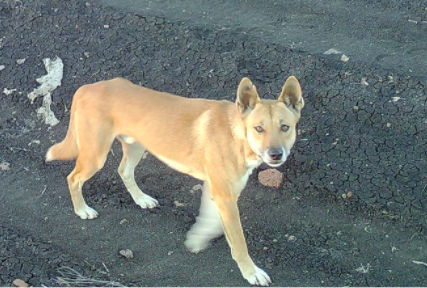 Canis familiaris, C. familiaris dingo, C. lupus familiaris, C. lupus dingo
Canis familiaris, C. familiaris dingo, C. lupus familiaris, C. lupus dingo
Fact Sheet
Baiting Program
Council's Wild Dog and Fox Baiting Program offers landholders the opportunity to protect their livestock against the threat of wild dogs and foxes to reduce pest populations. As part of this free program, fresh meat baits injected with 1080 (sodium fluoroacetate) poison are offered to registered landholders three times per year in May, September and December. Alternatively, manufactured baits are available all year round for purchase.
To be notified of upcoming baiting dates, or to subscribe to Council's eNews which contains Rural Services information, email Council's Rural Services Team (ruralservices@wdrc.qld.gov.au) to be added to our email list. Alternatively, phone 1300 COUNCIL (1300 268 624).
Landholders can register below to participate in the co-ordinated Wild Dog and Fox Baiting Program on 9 and 10 December 2025.
Register by Thursday 4 December 2025.
Register Here
Or call Council on 1300 COUNCIL (1300 268 624) or email ruralservices@wdrc.qld.gov.au to register your interest to participate and help aid in the planning of bait numbers, meeting places and times.
Heat Map
November 2024 - November 2025
Wild Dog Scalp Bounty
Council provides a bounty of $50 per Wild Dog scalp to encourage people to trap Wild Dogs
The scalp must be salted and dried before being handed in to council with a signed & completed Wild Dog Scalp form(PDF, 244KB) at any of our Customer Service Centres
NO RAW SCALPS WILL BE ACCEPTED
Wild Dog Trappers
Council has contracted Wild Dog trappers within the region. If you have a Wild Dog problem on your property these contractors can assist you, with their expert knowledge, by trapping your property to maximum effect. Contact Rural Services for further information.
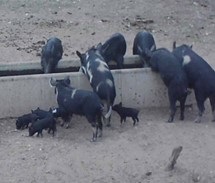 Sus scrofa
Sus scrofa
Fact Sheet
Feral Pig Baiting
Council offers 1080 meat baiting as well as grain baiting to manage feral pigs. Landholders must provide their own grain to be baited.
For more information, contact Council's Rural Services Team by emailing rural.services@wdrc.qld.gov.au or phoning 1300 COUNCIL (268 624)
Heat Maps
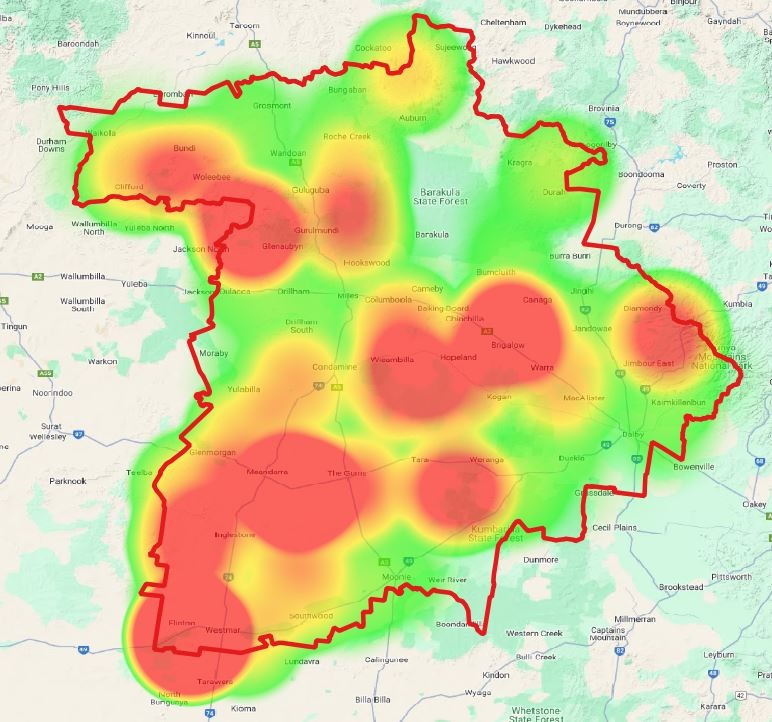
July 2023 - June 2024
Aerial Control
Contract aerial shooters are another efficient method to eliminate feral pigs.
Local Landholder Pest Groups organise coordinated Feral Pig shoots at different times of the year.
For further information, Council's Rural Services Team by emailing rural.services@wdrc.qld.gov.au or phoning 1300 COUNCIL (268 624).
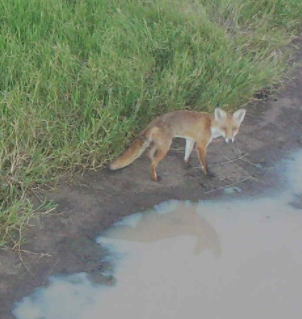 Vulpes vulpes
Vulpes vulpes
Fact Sheet
Baiting Program
Council's Wild Dog and Fox Baiting Program offers landholders the opportunity to protect their livestock against the threat of wild dogs and foxes to reduce pest populations. As part of this free program, fresh meat baits injected with 1080 (sodium fluoroacetate) poison are offered to registered landholders three times per year in May, September and December. Alternatively, manufactured baits are available all year round for purchase.
To be notified of upcoming baiting dates, or to subscribe to Council's eNews which contains Rural Services information, email Council's Rural Services Team (rural.services@wdrc.qld.gov.au) to be added to our email list. Alternatively, phone 1300 COUNCIL (1300 268 624).
Heat Maps
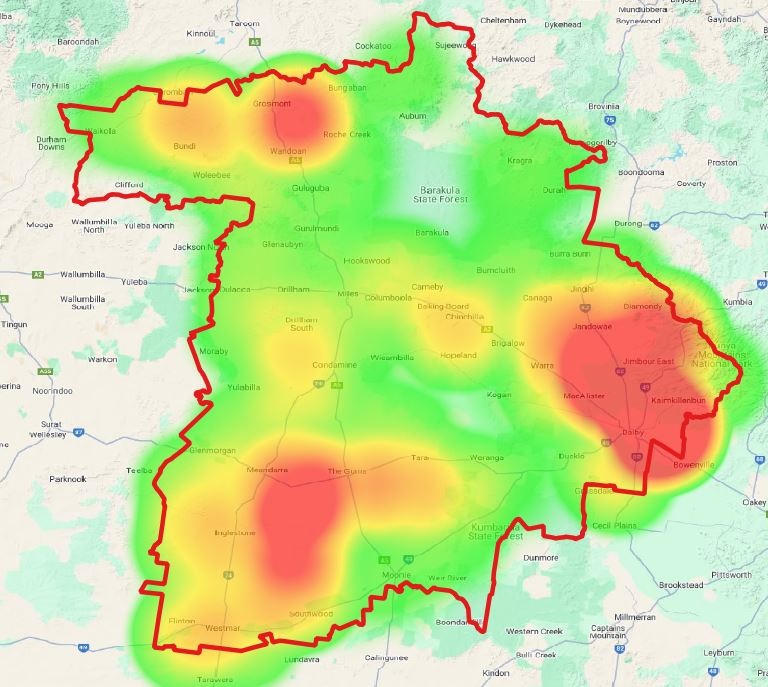
July 2023 - June 2024
Oryctolagus cuniculus Fact Sheet
Rabbit plagues are prevalent throughout parts of Australia because of their ability to reproduce rapidly. They degrade vegetation as well as soil. Rabbits are a major pest in Australia and cost the agriculture industry and environment $200 million annually.
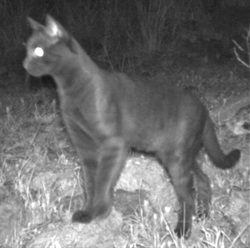 Felis catus
Felis catus
Fact Sheet
Heat Maps
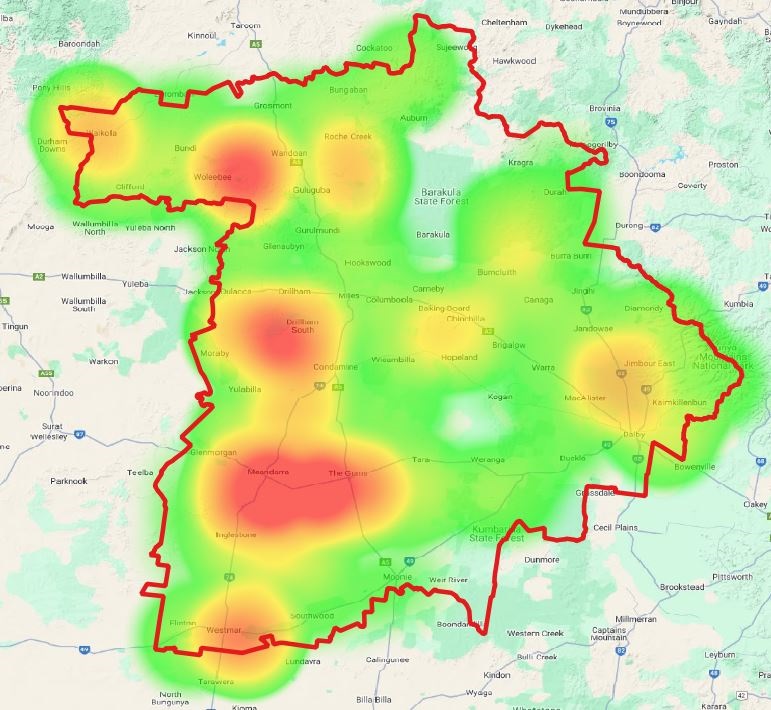
July 2023 - June 2024
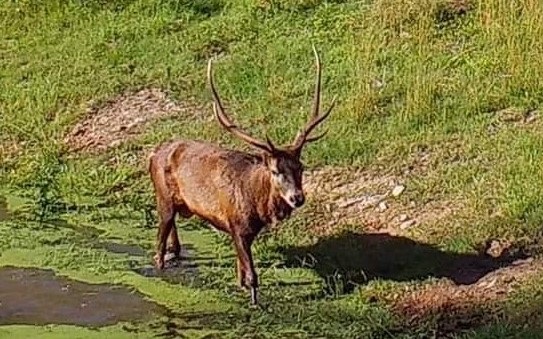 In the Western Downs there are two main Feral Deer species:
In the Western Downs there are two main Feral Deer species:
Feral Red Deer - Cervus elaphus Fact sheet
Feral Rusa Deer - Rusa timorensis, Cervus timorensis Fact sheet